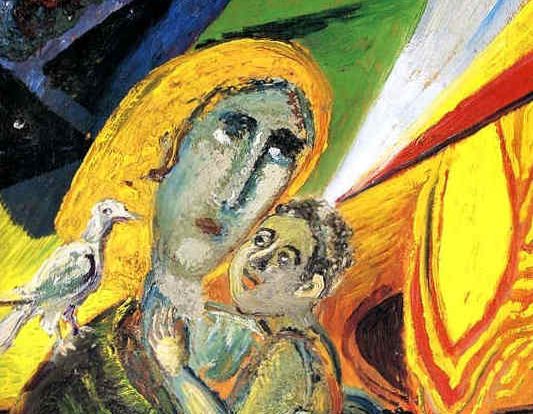Edgar Bazan ~ Shalom and the Character of the Kingdom of God

Read more from Rev. Edgar Bazan on transformative mission and the Kingdom of God here and here.
If there is one aspect of Jesus’ life that can help us gain insight into his mission, it is when he said: “My peace I [give] to you.” (Jn. 14:27) After his resurrection, this was a very particular way in which Jesus greeted the disciples: by saying “peace be with you.” Note John 20:21, when Jesus said, “Peace be with you. As the Father sent me, so I send you.” This is a significant statement that helps us realize the nature of the mission of God here on earth.
This concept of peace has profound missional implications for learning what it means to witness the salvation brought by Jesus Christ and to bring life through his teachings—the essence of our Christian faith.
The Hebrew word for peace is Shalom. This is the word we translate as peace in our language, but the meaning of this word is totally unlike our concept of peace. Our concept of peace is basically the absence of trouble, whereas Shalom means everything which contributes to the wellness of people’s lives. When the word Shalom is used as greeting it does not simply mean that you wish a person the absence of bad things, but it also means you wish them all possible good things.
Paul wrote in 1 Corinthians 14:33, “for God is a God not of disorder but of peace.” The end goal of God’s Shalom is to bring order to our lives and to align us not only with what we consider spiritual wellness but with everything that contributes to our well-being in every area of our lives to experience the fullness of life. Such is the power and aim of the kingdom of God that Jesus proclaimed and manifested in powerful ways. Every healing, every forgiven sin, every act of reconciliation, and every act of justice against evil oppressors is an act of Shalom, of leaving his peace with us.
The presence of God – Jesus’ bringing of his kingdom – brings forth actions of peace, healing, and salvation. This is how we know that God is active in our lives and ministries: if we are peacemakers in this way. (And this is not the same as pacifism that avoids conflict or struggle; rather, it happens as people seek justice through acts of redemption in the way Jesus did.) Opposition and persecution are to be expected when dealing with opposing forces against the kingdom of God, for the evil in this world abhors God’s Shalom.
The mission of God that the church has been entrusted to steward and carry on is for the “healing of the nations” (Rev. 22:2). This is an idea that is rooted in the Shalom of God. This is the hope the church ought to proclaim. In the midst of and in spite of the opposing evils of this world, the proclamation of the gospel of Jesus and the manifestation of God’s kingdom is the light overpowering darkness, the healing overpowering death, and the Shalom overpowering condemnation.
Note from the Editor: The featured image is a work entitled, “Love and Peace,” by David Burliuk, an early 20th century Ukrainian/Russian artist.